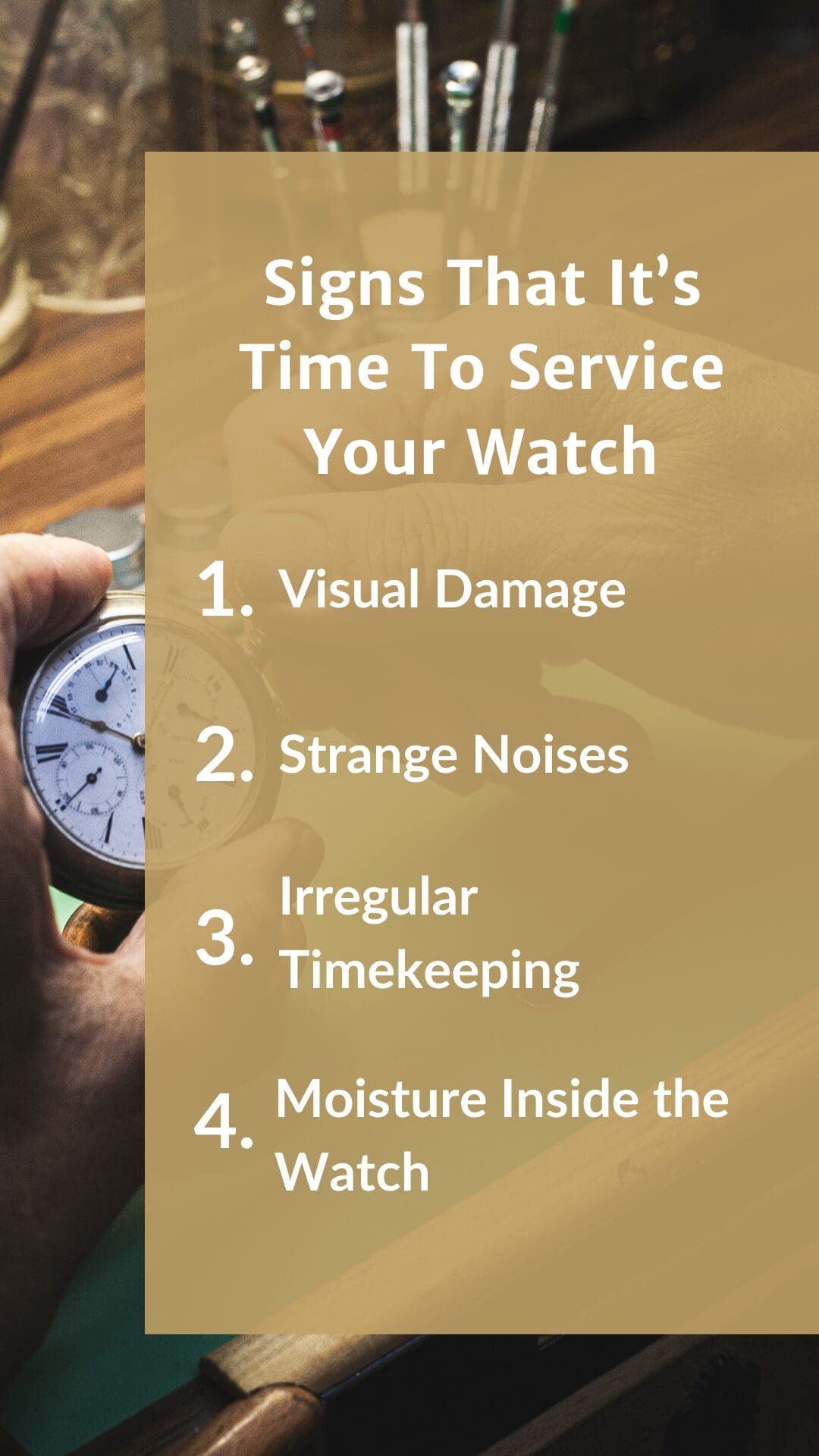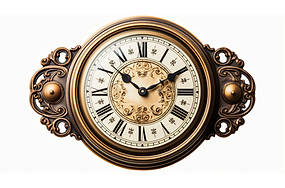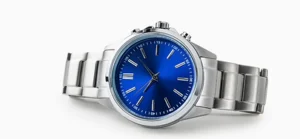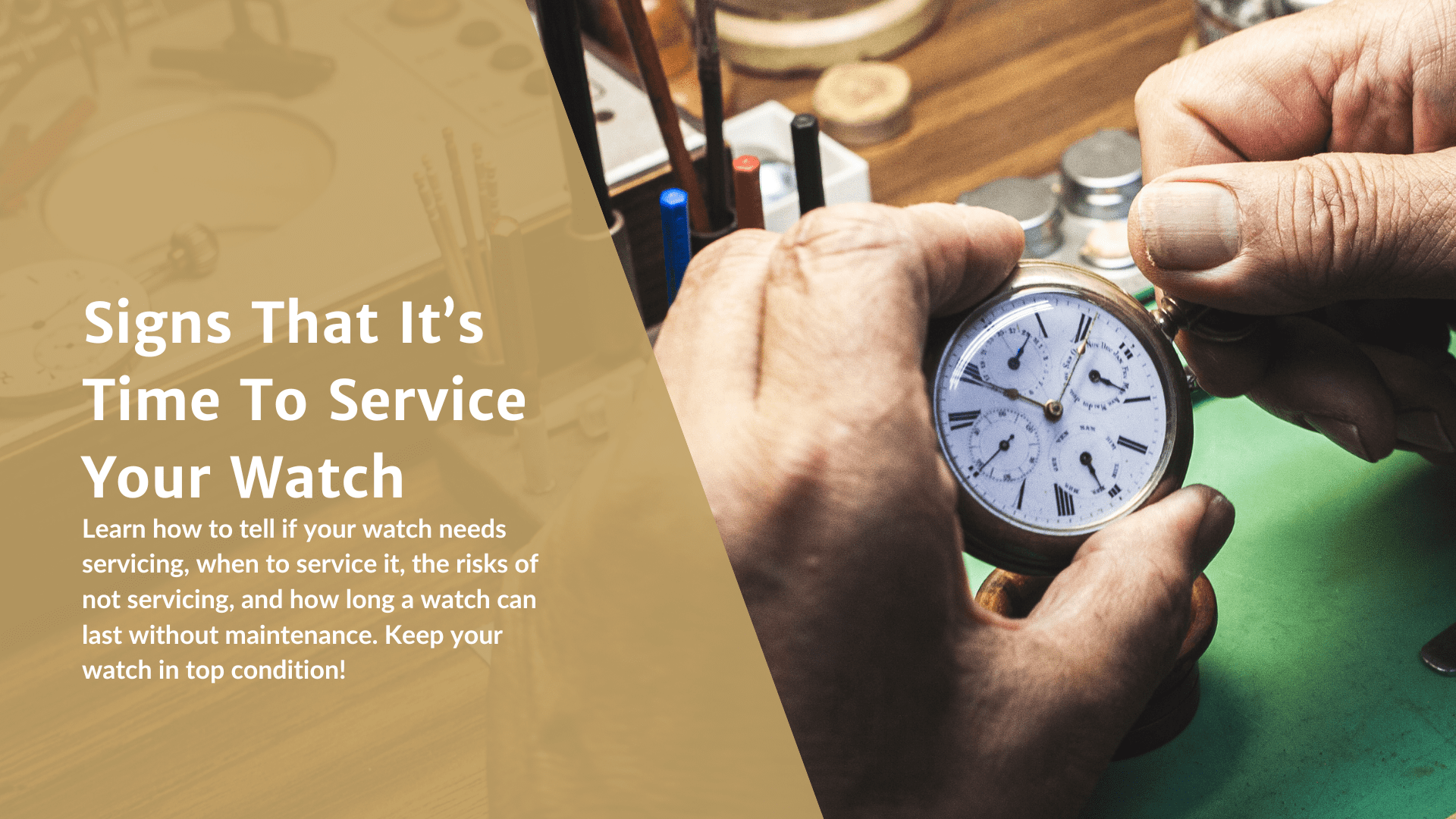A fine watch is not just a tool for telling time; it’s a piece of art, a status symbol, and a treasured heirloom. However, like any intricate machinery, watches require regular maintenance to ensure they function correctly and retain their value. Knowing when it’s time for watch servicing can prevent minor issues from becoming major problems. This guide will help you identify the signs that your watch needs professional attention.
Why Regular Watch Servicing is Important
Regular watch servicing is crucial for maintaining the accuracy, appearance, and longevity of your timepiece. Watches, especially mechanical ones, are composed of tiny moving parts that need lubrication and cleaning to function correctly. Over time, oils can dry up, dust and dirt can accumulate, and components can wear out, affecting the watch’s performance and lifespan.
Key Benefits of Regular Watch Servicing:
Regular watch servicing is essential to maintain the optimal performance and longevity of your timepiece. Here are some key benefits:
- Accuracy: Regular servicing ensures your watch keeps precise time, maintaining its reliability.
- Durability: Servicing prevents wear and tear from causing irreparable damage, protecting the watch’s functionality.
- Aesthetic: Regular maintenance helps maintain the appearance and value of your watch, preserving its beauty.
- Longevity: Servicing extends the life of your watch, allowing it to be passed down through generations.
Signs That Your Watch Needs Servicing
Even if your watch seems to be running fine, there are several indicators that it might need servicing. Watch for these key indicators:
1. Irregular Timekeeping
One of the most obvious signs that your watch needs servicing is irregular timekeeping. If you notice your watch is running fast or slow, it’s a clear indicator that something is amiss.
- Losing or Gaining Time: A deviation of more than a few seconds per day can suggest issues with the movement.
- Stopped Watch: If your watch stops frequently, it’s a sign that it needs immediate attention.
2. Moisture Inside the Watch
Moisture is the enemy of all watches, particularly mechanical ones. If you notice condensation under the crystal or any signs of water inside the watch, it’s crucial to get it serviced as soon as possible.
- Fogging: Condensation on the inside of the crystal.
- Rust: Visible rust on the hands or dial, indicating water infiltration.
3. Strange Noises
A watch should run smoothly and quietly. If you start hearing unusual sounds, such as grinding, rattling, or ticking louder than usual, it’s time to take it in for servicing.
- Grinding Noise: This could indicate that the lubrication inside the watch has dried up.
- Rattling: Loose components that need to be secured.
4. Difficulty Adjusting Time or Date
If you experience resistance or difficulty when adjusting the time or date on your watch, it’s a sign that the movement might need servicing. This could be due to dirt or a lack of lubrication.
- Stiff Crown: Difficulty turning the crown to set the time or date.
- Non-responsive Date: The date doesn’t change as expected.
5. Visual Damage
Any visible damage to the watch, such as cracks in the crystal, scratches, or worn-out components, should prompt a visit to a professional watchmaker.
- Cracked Crystal: Even small cracks can let in dust and moisture.
- Worn Straps or Bracelets: While not part of the movement, worn straps can affect the overall functionality and appearance.
Frequency of Watch Servicing
While the need for watch servicing can depend on various factors, including the type of watch and how it is used, there are general guidelines you can follow.
Mechanical Watches
Mechanical watches, whether manual or automatic, typically need servicing every three to five years. These watches are more complex and have more moving parts that require regular maintenance.
Quartz Watches
Quartz watches are generally more robust and require less frequent servicing. However, they should still be serviced every five to seven years to replace the battery, check the seals, and ensure all components are in good working order.
What Happens During Watch Servicing?
Understanding what happens during watch servicing can help you appreciate its importance. Here’s a step-by-step breakdown of the typical servicing process:
- Disassembly: The watch is carefully disassembled, and each component is inspected.
- Cleaning: Components are cleaned in an ultrasonic bath to remove dirt and old lubricants.
- Replacement of Worn Parts: Any damaged or worn parts are removed and replaced with new ones.
- Reassembly and Lubrication: The watch is reassembled, and all moving parts are lubricated.
- Regulation and Adjustment: The watch is regulated to ensure accurate timekeeping.
- Water Resistance Test: Seals and gaskets are tested and replaced if necessary to ensure water resistance.
- Final Inspection: The watch undergoes a final inspection to ensure it meets all standards of accuracy and functionality.
Choosing a Professional Watch Servicing Provider
Selecting the right professional for watch servicing is crucial. Here are some tips to ensure you choose a reputable service provider:
- Certified Technicians: Ensure the service provider has certified watchmakers who are trained to work on high-end watches.
- Experience: Look for a provider with a proven track record and positive customer reviews.
- Warranty: Choose a service provider that offers a warranty on their work, ensuring peace of mind.
- Transparency: A good provider will explain the work needed and provide a detailed estimate before starting any repairs.
Maintaining Your Watch Between Servicing
To keep your watch in top condition between servicing, follow these maintenance tips:
- Regular Cleaning: Wipe your watch regularly with a soft cloth to remove dirt and sweat.
- Avoid Extreme Conditions: Keep your watch away from extreme temperatures and strong magnetic fields.
- Store Properly: Be sure to store your watch in a cool, dry place when not in use. Consider using a watch box or case.
- Water Exposure: Avoid exposing your watch to water unless it is specifically designed for water resistance. Always ensure the crown is pushed in or screwed down before exposure to water.
Protect Your Investment with Regular Watch Servicing!
The bottom line is that regular watch servicing is essential for keeping your timepiece in optimal condition, ensuring it runs accurately and looks its best. By recognizing the signs that your watch needs servicing, you can address issues early and avoid costly repairs. Whether it’s irregular timekeeping, moisture inside the watch, strange noises, difficulty adjusting the time, or visual damage, don’t ignore these warning signs.
If you notice any of these signs in your watch, it’s time to get it serviced. At FWC Jewelers, we’ve been serving the Seattle Metro Area for three generations, offering everything from quick battery replacements to full servicing of heirloom timepieces. Our certified watchmakers provide expert repairs with a fast turnaround of 3-6 weeks, all backed by a one-year warranty. Contact us today to keep your timepiece running smoothly and ensure it remains a cherished part of your collection.
FAQs: Watch Servicing
How to tell if a watch needs servicing?
When to get your watch serviced?
What happens if I don't service my watch?
How long can a watch last without servicing?
































